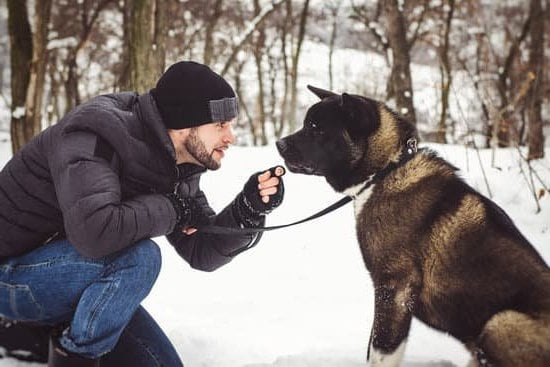Are you curious about how to train a German Shepherd like a police dog? German Shepherds are known for their intelligence, loyalty, and natural abilities that make them well-suited for police work. In this article, we will explore the qualities of this breed that make them excellent candidates for police training and how you can effectively train your German Shepherd to excel in this role.
German Shepherds are renowned for their strong work ethic, high energy levels, and keen sense of smell, making them ideal for various tasks required in police work. Their intelligence and ability to learn quickly also set them apart as one of the top choices for law enforcement agencies. Understanding these natural abilities is essential in harnessing the potential of your German Shepherd as a police dog.
To successfully train a German Shepherd like a police dog, it is crucial to build a strong foundation through obedience training. This includes teaching your dog basic commands such as sit, stay, heel, and come, which are essential for effective communication and control in law enforcement scenarios.
Additionally, socialization plays a vital role in exposing your German Shepherd to different environments, people, and situations to ensure they can adapt and perform well under various circumstances. Through understanding the breed’s natural abilities and laying the groundwork for obedience training and socialization, you can set the stage for effective police dog training.
The Qualities of a Police Dog
German Shepherds are one of the most popular breeds for police work, and for good reason. Their natural abilities and characteristics make them an excellent fit for law enforcement roles. Here are some qualities that make German Shepherds well-suited for police work:
1. Intelligence: German Shepherds are known for their high level of intelligence, which makes them capable of learning complex commands and performing a variety of tasks.
2. Loyalty: These dogs are fiercely loyal to their handlers, making them reliable partners in high-pressure situations.
3. Strength and Agility: German Shepherds are strong and agile, making them well-equipped for physically demanding tasks such as apprehending suspects or searching through challenging terrain.
4. Fearlessness: These dogs have a bold and confident nature, allowing them to fearlessly confront potentially dangerous situations.
To train a German Shepherd like a police dog, it is important to understand these inherent qualities and how they can be developed and honed through specialized training techniques. By focusing on these natural attributes, you can help your German Shepherd reach its full potential as a valuable asset in law enforcement.
When training your German Shepherd for police work, it’s essential to harness their natural instincts and abilities effectively. This involves teaching them skills like tracking scents, apprehending suspects, and responding to commands with precision. Using positive reinforcement methods such as treats, praise, or playtime can be highly effective in motivating your dog to perform these tasks accurately and consistently.
With proper training and guidance from experienced professionals, your German Shepherd has the potential to excel as a police dog. It’s crucial to provide ongoing physical and mental stimulation to maintain their health and readiness for challenging real-life scenarios. By understanding the breed’s natural qualities and employing specialized training techniques, you can prepare your German Shepherd for a successful career in law enforcement.
The Importance of Obedience Training
German Shepherds are known for their intelligence, loyalty, and strong work ethic, making them an ideal breed for police work. However, in order to train a German Shepherd like a police dog, it is crucial to establish a strong foundation of obedience training. This foundation will lay the groundwork for more advanced and specialized training techniques necessary for police work.
Understanding Obedience Training
Obedience training is essential for any dog, but it holds particular importance for German Shepherds due to their high energy and drive. Basic commands such as sit, stay, come, and heel are fundamental skills that every police dog must master. These commands form the basis of communication between the handler and the dog in high-pressure situations.
The Role of Consistency and Discipline
Consistency is key when it comes to obedience training. German Shepherds thrive on routine and clear boundaries, so it is important to establish consistent rules and expectations from the start. Additionally, discipline should be fair and consistent to ensure that the dog understands what is expected of them. This can help build trust between the handler and the dog, which is essential in police work.
Building Trust Through Training
Obedience training not only teaches your German Shepherd vital commands but also helps build trust between you and your dog. Trust is crucial in police work as the dog needs to rely on their handler in various situations. By establishing a strong foundation of obedience training, you are laying the groundwork for a successful partnership between you and your German Shepherd when they are eventually out in the field.
By focusing on obedience training as a crucial aspect of preparing your German Shepherd for police work, you are setting your canine companion up for success in more advanced training techniques like tracking, apprehension, and following commands under pressure.
Socialization
The Importance of Early Exposure
Early socialization is key to preventing fear or aggression towards unfamiliar people, animals, and experiences. Introducing your German Shepherd puppy to different sounds, sights, smells, and people will help them learn to adapt and remain calm in new situations. Exposing them to environments such as busy streets, parks, public transport, and other animals can also help build their confidence.
Positive Reinforcement
When introducing your German Shepherd to new people or experiences, it’s essential to use positive reinforcement techniques such as treats, praise, and play. This will help them associate these new encounters with positive outcomes and reduce any anxiety or fear they may have initially.
Continued Socialization
Socialization should be an ongoing process throughout your German Shepherd’s life. Regular exposure to different environments and interactions with diverse individuals will further reinforce their ability to remain composed in high-pressure situations – a crucial skill for a successful police dog candidate.
By understanding the importance of socialization and diligently exposing your German Shepherd to a wide range of experiences from an early age using positive reinforcement techniques, you can significantly increase their readiness for police work. This foundational training will set the stage for their eventual specialized training in tracking, apprehension, command following, and more.
Specialized Training Techniques
When training a German Shepherd to work as a police dog, specialized training techniques are crucial to ensure that they can fulfill their role effectively. Here are some essential techniques for teaching your German Shepherd to track, apprehend, and follow commands:
Tracking
One of the key abilities of a police dog is their tracking skills. German Shepherds have a natural inclination towards tracking, making them well-suited for this aspect of police work. Training your dog to track involves exposing them to various scents and teaching them to follow a scent trail.
This can be done by using scent trails laid out in different environments such as urban areas, forests, and buildings. By consistently practicing tracking exercises, your German Shepherd will become proficient in locating and following scents, an essential skill for police work.
Apprehension
Apprehension training is another critical aspect of preparing your German Shepherd for police work. This involves teaching the dog to apprehend suspects while obeying specific commands from their handler. Utilizing bite sleeves or suits during training sessions can help simulate real-life scenarios and teach the dog when and how to use controlled force. It is important to seek professional guidance when training your German Shepherd in apprehension techniques to ensure that it is done safely and effectively.
Command Following
In addition to specialized skills such as tracking and apprehension, obedience training plays a significant role in preparing a German Shepherd for police work. Teaching your dog to follow commands promptly and accurately is crucial for their effectiveness as a police dog. This includes commands such as “sit,” “stay,” “heel,” and “release.” Consistent practice with positive reinforcement will help reinforce these commands and ensure that your German Shepherd responds reliably in high-pressure situations.
By incorporating these specialized training techniques into your German Shepherd’s training regimen, you can effectively prepare them for the demanding role of a police dog. Seeking professional guidance from experienced trainers and consistently practicing these techniques will contribute to the success of your German Shepherd as a skilled and reliable law enforcement companion.
Utilizing Positive Reinforcement
German Shepherds are known for their intelligence and trainability, making them an excellent choice for police work. When it comes to training a German Shepherd like a police dog, utilizing positive reinforcement is key to achieving effective results. Positive reinforcement involves rewarding desired behaviors to encourage their repetition, and this method has been proven to be highly successful in training police dogs.
One of the most important aspects of using positive reinforcement is timing. It’s crucial to reward your German Shepherd immediately after they exhibit the desired behavior. This could be in the form of treats, praise, or playtime. By associating the behavior with a positive outcome, your dog will be motivated to repeat that behavior in the future.
Consistency is also paramount when using positive reinforcement. Set clear expectations for your German Shepherd and be consistent with your rewards. This helps your dog understand what is expected of them and reinforces the connection between their actions and the positive outcome they receive.
In addition to treats and praise, utilizing toys as rewards can also be beneficial in police dog training. Many German Shepherds have a high prey drive and enjoy playing with toys, so incorporating this into their training can increase motivation and engagement. By using positive reinforcement techniques consistently, you can effectively train your German Shepherd to excel as a police dog.
| Positive Reinforcement Training Techniques | Description |
|---|---|
| Timing | Rewarding desired behaviors immediately to reinforce them |
| Consistency | Setting clear expectations and being consistent with rewards |
| Toy Rewards | Incorporating playtime with toys as a form of positive reinforcement |
Working With Professional Trainers
German Shepherds are known for their intelligence, loyalty, and strong work ethic, which makes them an excellent choice for police work. However, in order to train a German Shepherd like a police dog, it is important to seek guidance from experienced professionals. Professional trainers who specialize in working with police dogs have the expertise and knowledge to help you effectively train your German Shepherd for this type of work.
Professional trainers can provide valuable insights into the specific qualities and skills required for police work, as well as the best training techniques to develop these attributes in your dog. They can also offer personalized guidance based on the unique characteristics and abilities of your German Shepherd. Additionally, professional trainers have access to specialized training equipment and facilities that are essential for teaching your dog advanced skills such as tracking and apprehension.
In addition to technical expertise, professional trainers can also provide support and guidance for handlers, helping them understand how to communicate effectively with their canine partners and build a strong working relationship. By working with experienced professionals, you can ensure that your German Shepherd receives the comprehensive training necessary to excel as a police dog.
| Working With Professional Trainers | Seeking Guidance From Experienced Professionals |
|---|---|
| Access to specialized training equipment | Personalized guidance based on the unique characteristics of your German Shepherd |
| Insights into specific qualities and skills required for police work | Support and guidance for handlers |
Maintaining Physical and Mental Health
German Shepherds are known for their exceptional physical abilities and high intelligence, making them a popular choice for police work. However, to train a German Shepherd like a police dog, it is essential to prioritize their physical and mental health. Regular exercise is crucial for maintaining the strength and endurance needed for police work.
Daily walks, runs, and playtime are important to keep your German Shepherd in top physical condition. In addition to physical exercise, mental stimulation is equally important. Engaging your dog in activities that challenge their problem-solving skills such as puzzle toys or obedience training can help keep them mentally sharp.
A balanced diet is also essential for maintaining the overall health of a German Shepherd. A high-quality diet that provides the necessary nutrients for muscle development and energy is vital for a police dog candidate. Consult with a veterinarian to determine the best diet for your German Shepherd based on their age, activity level, and any specific health considerations.
In addition to exercise and diet, mental health should not be overlooked when training a German Shepherd like a police dog. These dogs thrive on having a job to do and are happiest when they have a sense of purpose. Engage your German Shepherd in various training exercises that mimic real-life scenarios they may encounter as a police dog.
Mental stimulation through training can also help build confidence and improve focus, which are critical qualities for a successful police dog. Remembering to maintain both the physical and mental well-being of your German Shepherd will help ensure that they are prepared to excel in their role as a police dog.
Real-Life Application
After undergoing extensive obedience, socialization, and specialized training, it is important to put your German Shepherd’s skills to the test in simulated scenarios. This stage of training is critical in assessing whether your dog is prepared for the high-pressure demands of police work.
Simulated scenarios can range from controlled environments mimicking real-life situations such as tracking a suspect or responding to a threat, to more complex exercises that require the dog to demonstrate intelligence, problem-solving abilities, and physical agility.
One key aspect of real-life application training is exposing your German Shepherd to various stimuli and settings. This includes urban environments, rural areas, crowds, and noisy settings to ensure that the dog remains focused and controlled regardless of the surroundings. Additionally, conducting training drills in different weather conditions can help prepare the dog for any situation they may encounter while on duty.
Furthermore, incorporating actual law enforcement personnel into simulated scenarios can provide valuable insight into how your German Shepherd responds when working alongside their human counterparts. This type of collaboration helps solidify the teamwork necessary for a successful police dog-handler relationship and allows for adjustments based on real-time feedback from experienced professionals.
Ultimately, putting your German Shepherd’s training to the test in these simulated scenarios will not only gauge their preparedness for police work but also strengthen their skills and confidence as a capable police dog.
Conclusion
In conclusion, training a German Shepherd to excel as a police dog requires a deep understanding of the breed’s natural abilities, as well as the qualities that make them well-suited for law enforcement work. Obedience training and socialization are essential in building a strong foundation for specialized training techniques, including tracking, apprehension, and following commands.
Positive reinforcement and the guidance of professional trainers are crucial in honing your German Shepherd’s skills and behavior. Additionally, maintaining their physical and mental health is vital for ensuring they are prepared for the demands of police work.
With dedication and proper training, your German Shepherd has the potential to excel as a police dog. Whether it’s tracking down suspects, detecting illegal substances, or providing assistance in search and rescue missions, these intelligent and versatile dogs can be valuable assets in law enforcement. By putting their training to the test in simulated scenarios and real-life applications, you can assess their readiness for police work and continue to refine their skills.
Overall, training a German Shepherd like a police dog is not without its challenges, but with patience, consistency, and a thorough understanding of the breed’s capabilities, you can mold your canine companion into an effective and reliable partner in law enforcement. Remember that ongoing training and support are key to maintaining the high standards expected of police dogs, ensuring that they remain capable and dependable members of any K-9 unit.
Frequently Asked Questions
Can You Train a German Shepherd Like a Police Dog?
Yes, it is possible to train a German Shepherd like a police dog. With the right training and guidance, these intelligent and trainable dogs can be taught the skills needed for police work, such as obedience, agility, and scent detection.
What Makes a German Shepherd a Good Police Dog?
German Shepherds make excellent police dogs due to their intelligence, loyalty, strength, and trainability. They have a strong work ethic and are able to learn complex tasks quickly. Their protective nature also makes them well-suited for law enforcement work.
How Do You Train a German Shepherd to Be a Protection Dog?
Training a German Shepherd to be a protection dog involves teaching them obedience commands, bite work, scent detection, and agility. It’s important to start training at a young age and use positive reinforcement techniques to develop their natural protective instincts while maintaining control over their behavior. Consistent training and socialization are key in preparing them for protection work.

Welcome to the blog! I am a professional dog trainer and have been working with dogs for many years. In this blog, I will be discussing various topics related to dog training, including tips, tricks, and advice. I hope you find this information helpful and informative. Thanks for reading!





